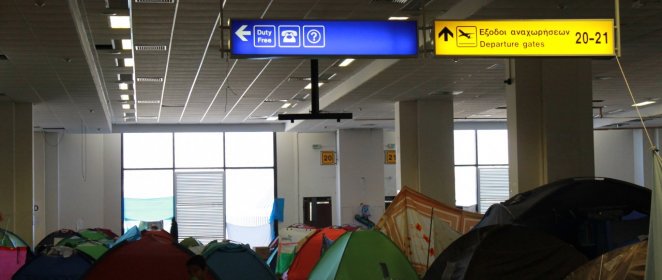The European Commission published its Fourth Report on the implementation of the EU-Turkey deal this week. The publication comes together with a Joint Action Plan of the EU Coordinator on the implementation of certain provisions of the EU-Turkey Statement that outlines several modifications to the Greek asylum procedure aiming to increase numbers of returns under the EU Turkey deal, as well as a Recommendation to EU Member States to reinstate the Dublin procedure to Greece. The proposals have been sharply criticised by a number of actors, including Amnesty International.
Three main proposals are put forward by the Commission to modify the EU Turkey deal. The first foresees the abolition of the exemption of vulnerable persons or persons falling within the family provisions of the Dublin Regulation from the exceptional border procedure applied on the Greek islands. Safeguards might only be maintained for victims of torture or other forms of violence, and families in case the right to family life is threatened. The second proposal envisages the further speeding up of the decision-making for asylum seekers such as Pakistani, Bangladeshi, Algerian, Moroccan and Tunisian nationals. Finally, the Commission urges Greece to exert stronger pressure on its Appeals Committees for faster decisions and to explore the possibility to limit the number of appeal steps in the context of the asylum process. So far a number a significant number of returns under the EU-Turkey deal have been prevented by the rulings of the Appeals Committees.
Further, the Commission recommended that Member States reinstate Dublin procedures to Greece from 15 March 2017 onwards. Ahead of the resumption of Dublin procedure and transfers to Greece, the Commission recommends Greece to ensure sufficient reception capacity, guarantee at least the minimum standards of the recast Reception Conditions Directive in all facilities, to increase the efficiency of the asylum procedure and to effectively implement the new legal aid scheme.
Iverna McGowan, Director of Amnesty International’s European Institutions Office, has called the proposals “hypocritical.” She states that: “Asylum-seekers on the Greek islands face overcrowding, freezing temperatures, lack of hot water, violence and hate-motivated attacks. While we have long called for reception conditions to improve, forcing refugees to stay on the islands only so that they can be returned to Turkey, in line with Turkey’s interpretation of the deal, is inhumane. Pressure on Greece must be immediately alleviated, not increased.”
For further information:
- AIDA, Greece: #1 European Union to resume Dublin procedures in March 2017, 8 December, 2016.
- AIDA, Greece: #2 European Union to remove existing guarantees against Turkey returns, 8 December, 2016.
- Dutch Council for Refugees, ECRE, Greek Council for Refugees, Italian Council for Refugees and ProAsyl, The implementation of the hotspots in Italy and Greece, December 2016.
- ECRE and The AIRE Centre, With Greece: Recommendations for refugee protection, July 2016.
Photo: Elliniko.Credit: ECRE/R.Carvalho

